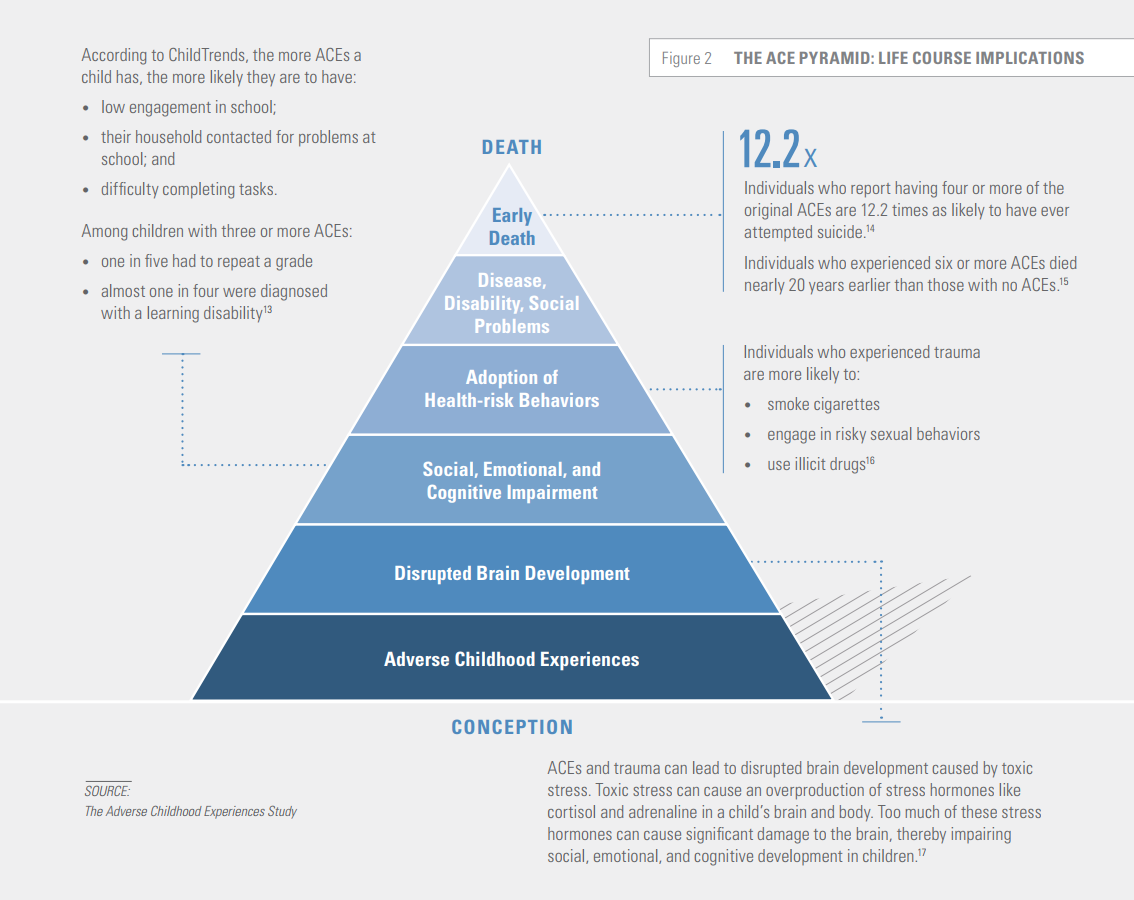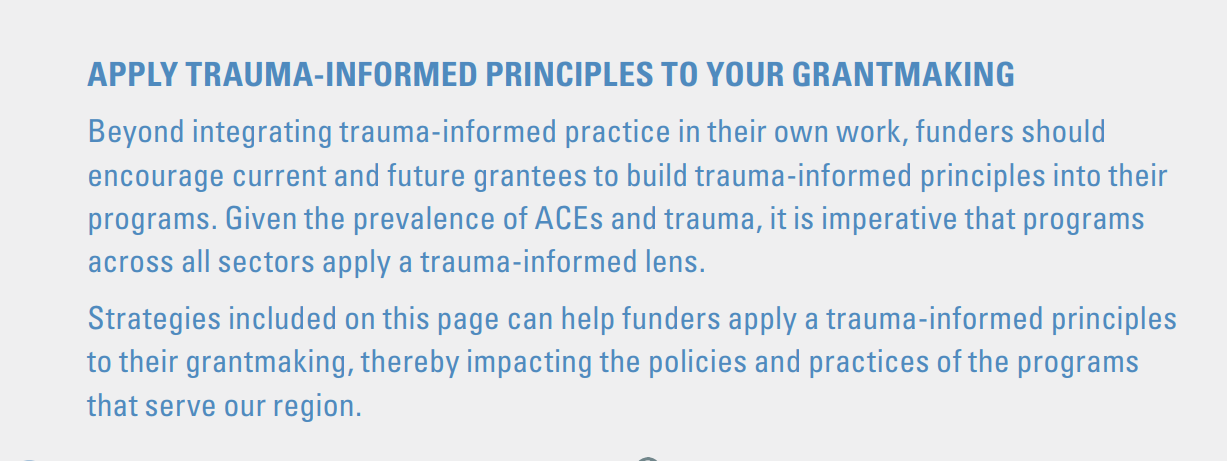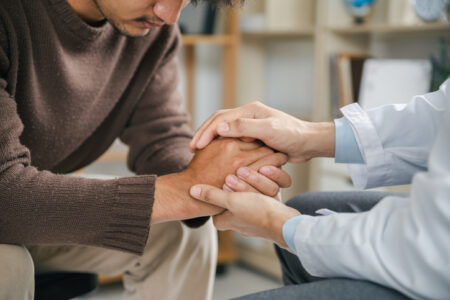
Share On Social!
More kids in Philadelphia experience four or more childhood traumas (21.5%) than kids across the nation (14.3%).
Multiple traumas like abuse, parental death, racism, fear of deportation, and others—known as adverse childhood experiences (ACEs)—can significantly impact a child’s brain development, academic achievement, and physical and mental health into adulthood.
Latino kids are at high risk of multiple traumas, and acting out.
That’s why we are excited to see three philanthropic groups team up in Philadelphia (14.4% Latino) to create a new guide to help funders and groups focus on bringing trauma-informed care for local kids.
Trauma-informed care shifts the outlook from “What’s wrong with you?” to “What happened to you and how can we help?”
“Understanding the widespread effects of trauma on all areas of life is the first step in ensuring we’re equipped to recognize and address the aftermath of trauma and guide people to healing,” said Jim Cawley, leader of the United Way of Greater Philadelphia and Southern New Jersey. “Being trauma-informed means we can help others thrive academically, graduate from high school, find and keep jobs and live healthy, fulfilling lives.”
The Need for Trauma-Informed Care
 Trauma-informed care involves safe, nurturing relationships for kids from adults who suspend judgement—and consequence. This can buffer the harmful effects of trauma, and build resilience to overcome adversity and move forward.
Trauma-informed care involves safe, nurturing relationships for kids from adults who suspend judgement—and consequence. This can buffer the harmful effects of trauma, and build resilience to overcome adversity and move forward.
Check out how a San Antonio school district created such an environment for students.
But, sadly, trauma-informed care is not mainstream.
It’s rare to find such practices in schools, leanring centers, afterschool programs, child/family welfare programs, nonprofit organizations, higher education, health care, law enforcement, juvenile justice systems, or the military.
Trauma-informed philanthropy can help.
Addressing Trauma Though Philanthropy
Philanthropy has the opportunity to address complex health and social problems by shaping the programs that serve the community.
Thus, local funders have a responsibility to understand how trauma and ACEs impact their community.
Through financial support, thought leadership, and strategic partner building, philanthropy can encourage grantees to adopt trauma-informed approaches that promote healing and resilience and improve quality of life today and for generations to come.
Funders must first understand the ways in which trauma is a root cause of poor health and social outcomes.
Funders in the Delaware Valley, Penn., were eager to better understand the impacts of trauma in their region and how they can they can incorporate a trauma-informed approach into their work.
But how?
A Guide for Trauma-Informed Philanthropy
Three philanthropic groups in the greater Philadelphia area—Philanthropy Network Greater Philadelphia, the Thomas Scattergood Behavioral Health Foundation, and United Way of Greater Philadelphia and Southern New Jersey—partnered to produce a guide for funders.
A Funder’s Resource Guide for Supporting Trauma-Informed Practice in the Delaware Valley aims to raise awareness about the science behind trauma and promote trauma-informed care.
The guide, released in October 2016, includes:
- The science behind trauma, ACEs, and resilience;
- How to use the science of trauma to inform your work as a funder; and
- Examples of initiatives and programs that demonstrate the use of trauma-informed practice.
The guide can be used by organizations, programs, and communities to better understand how to bring a trauma-informed lens to their work.
 “Whether they know it or not, all funders are doing work that impacts individuals who have experienced trauma,” said Joe Pyle of the Thomas Scattergood Behavioral Health Foundation. “Our goal with this guide is to make sure that funders can be more effective in how they address this issue.”
“Whether they know it or not, all funders are doing work that impacts individuals who have experienced trauma,” said Joe Pyle of the Thomas Scattergood Behavioral Health Foundation. “Our goal with this guide is to make sure that funders can be more effective in how they address this issue.”
How can you use the guide?
Check out the guide. Follow the philanthropic organizations behind the guide (@ScattergoodFdn @philanthropyPHL @PhillySJUnited). See if you can create something similar in your city. Or share with others to advance trauma-informed philanthropy in your community, for the sake of local children.
Also, keep you eye out for Volume Two of the Philadelphia guide, coming in March 2018!
By The Numbers
142
Percent
Expected rise in Latino cancer cases in coming years



